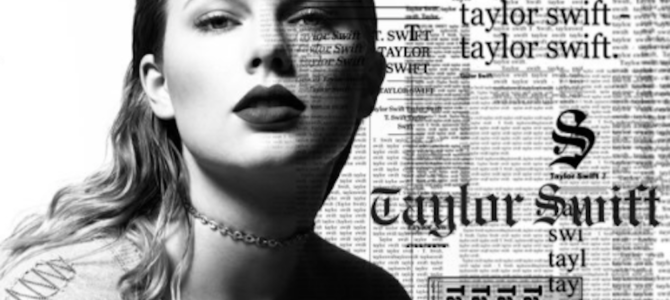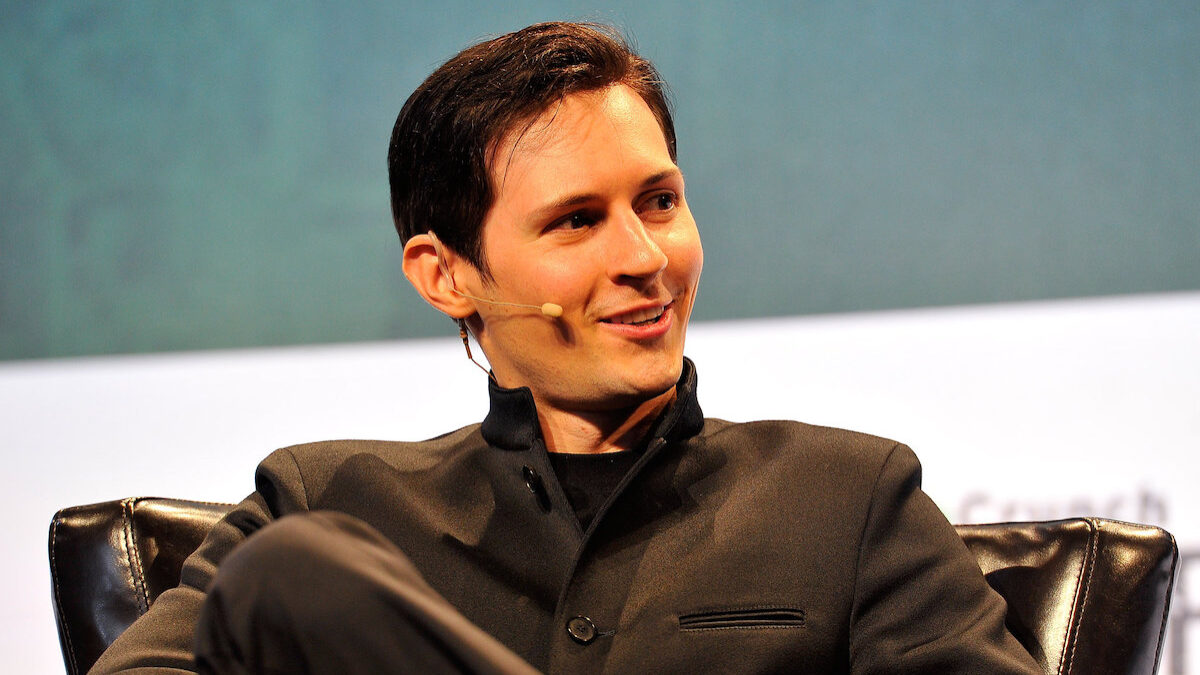
On Wednesday afternoon Taylor Swift tweeted some really big news — she’s releasing a new album, “Reputation,” November 10 and will be dropping the first single today. Leading up to the big reveal, Swift cleaned out her Twitter and Instagram accounts on the anniversary of her “1989” album announcement, spurring much speculation from fans about new music coming down the pike.
She also tweeted out a series of snake videos several days in a row prior to the big news — which many took to mean that she’s owning the snake emoji that’s become associated with her public persona after a series of public feuds via social media with Nikki Minaj, Calvin Harris, and Kanye West.
— Taylor Swift (@taylorswift13) August 23, 2017
Bustle wasted no time in calling for an apology from Swift for her “problematic” behavior over the years — particularly for her public feuds with West and Harris.

Lollllllll. Spoiler alert: this will likely not be an apology album. The album cover has “ripped from the headlines” art, a choice that screams “come at me.” And she’s supposedly going to debut her new single at the MTV Video Music Awards alongside her longtime rival, Katy Perry, who’s hosting the shindig. This savage move doesn’t indicate she’s about to make nice or say sorry anytime soon — nor should she!
Haters Gonna Hate
Over the past couple of years, Swift has been viciously attacked and deemed “problematic” by leftist media types who have taken issue with everything the singer did. Alas, many of the critiques have revealed more about feminism than they did about the pop star. It’s not enough for someone like Swift to be successful in a male-dominated industry to be a considered a feminist. Apparently she must also embrace and preach intersectionality. She must publicly flog herself for allegedly committing the grave sin of cultural appropriation and vote and virtue signal the way the Left wants her to — or risk getting her feminist card revoked.
This is why Taylor Swift should abandon feminism altogether. Feminists do not want to support Swift. They don’t care about how many records she breaks, awards she wins, or how she smashed the wage gap by being the highest paid artist in 2016. They want only to use her stardom to push their political priorities.
A recent BuzzFeed piece by Ellie Woodward, intended to be an anthology of Swift’s misdeeds, is a pretty good account of all the hissy fits Woke Internet has thrown in relation to the singer.
Following the fallout with West and Kardashian, this positive perception of Swift is now in tatters. The feud exposed the truth that white fragility is the most imperative component of Swift’s success. Performing white female melodrama has enabled Swift to establish her posture as victim and navigate any conflict with ease, devoid of culpability. But her conflict with West cannot be dismissed as an insignificant celebrity feud, leaving a trail of snake emojis in its wake – there are sinister undertones. It proved that Swift recognised the power her white womanhood affords her – presumed innocence and empathy – and used this to her advantage in repeated acts that she surely knew would damage West’s reputation and strengthen her own. Swift propagating this narrative of fragile white womanhood to villainise a black man is ‘ruthless’ at best, and at worst, dangerous.
So Woodward is calling Swift out for taking issue with Kanye for calling her “that bitch” and using her naked likeness in a music video. In a recorded conversation between Swift and Kanye, we can hear her enthusiastically affirm his creative vision for the song and corresponding video. I thought her duplicitousness was shady, but Woodward’s explanation of the drama — giving it a grand narrative of a racially motivated slam with “To Kill A Mockingbird” proportions — is too far. Let’s continue.
So too is the fact that, while Swift’s references to victimhood in her lyrics are crucial to retaining her core fanbase, who regard them as proof of ‘normalcy’ and ‘relatability’, they apply only to women like her. That is, women who are white, middle-class, heterosexual, and normatively feminine. Anyone else is not represented lyrically, and largely overlooked in Swift’s wider communication with the world. In fact, rather than speaking to fans about intersectionality, she chose instead to talk about feeling ‘damaged’ by a breakup. Righting the cultural-appropriative wrongs of ‘Shake It Off’ was dismissed in favour of a new music video depicting ‘an African colonial fantasy’. And the one time she was handed the opportunity by Minaj to learn about the experience of black women and implored to speak about it, Swift immediately reverted straight back to her posture of victim. In fact, her fragile white femininity is merely a reflection of her privilege. That she felt so acutely victimised by Minaj’s tweets and West calling her ‘that bitch’ is proof of her never having experienced oppression.
Taylor Swift is a white, cisgendered, heterosexual, able-bodied, attractive woman who grew up wealthy — and there’s nothing wrong with that. She’s not going to speak for everyone else, nor should she feel required to do so. There’s nothing wrong with Swift speaking from her own experience and encouraging others facing similar difficulties to overcome them.
Being called a “bitch” is rude. It’s fine to get upset about that. Isn’t that what feminism is supposed to be about? Empowering women to speak out when they’re being dismissed or treated badly? Woodward’s dismissal of Swift’s objection to being called that is patronizing.
Don’t Play Their Blame Game
I’m not the only one who noticed a “lack of public support” for Swift during her lawsuit against a radio DJ for groping her butt during a meet and greet at a radio studio. Bustle’s Dana Getz writes.
During Kesha’s case against Dr. Luke last year, the outpouring of encouragement was palpable, and when Bill Cosby received a mistrial in June, the backlash seemed equally prevalent. But while there have been many fans (and likely, non-fans too) that have already backed Swift, the response feels strikingly imbalanced: Rather than focusing on the actual proceedings, people are crafting witty one-liners on Twitter and turning her court room sketch into a meme.
But Getz’s defense of Swift is not without a poke-in-the-eye at the end.
To be clear, this is not a defense of Swift, nor a dismissal of her problematic entanglement, past or present. Instead it’s a simple plea to, in this matter, put your personal grievances aside. We can’t chide Swift for being silent when it matters most, if we’re not willing to hold ourselves to the same standard.
When Swift did try to help out another victim of sexual assault, she was criticized. After she donated $250,000 to Kesha amid her legal battle with a producer she says mentally, sexually, and physically abused her, she was accused of flaunting her money by throwing it at the problem instead of speaking out against the producer like Demi Lovato thinks she should have.
Cultural appropriation is a critique that has been hurled at Swift time and time again. She calls herself a feminist, surrounds herself with a “squad” of women — a term she supposedly appropriated from black culture — then is shot down by others who are mad she won’t tell everyone who she voted for and didn’t attend the deeply leftist women’s march.
Some are freaking out over “Reputation’s” cover art, claiming Swift ripped off Kanye’s cover art from his most recent album “Life of Pablo.”
https://twitter.com/booksandbighair/status/900405355020242945?ref_src=twsrc%5Etfw&ref_url=http%3A%2F%2Few.com%2Fmusic%2F2017%2F08%2F23%2Ftaylor-swift-reputation-album-reactions%2F
That is absurd, because they do not look alike. See for yourself.

To all this, I say: Let her live!
Taylor, ditch the feminist cause, because you’ll never be woke enough for them. Embrace the problematic label the Left has heaped upon your head and wear it with pride. Feminism today isn’t about applauding successful women or clearing the path for women of future generations to achieve their dreams. If it were, they would proudly claim you as one of them.
It’s about pushing an ideology that praises victimhood, but will publicly beat you down for acting like one because you’re too blonde and too rich to be treated with respect you’ve earned. The rules of feminism are ever-changing, and they will drive you mad if you try to follow them. From all the problematic ladies out there, we say: “Come on in, Taylor, the water is warm!”









